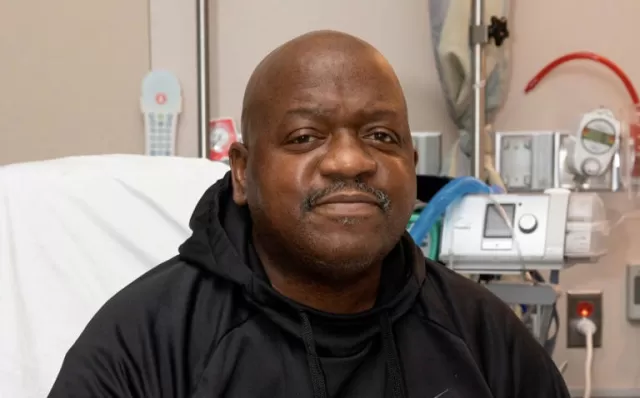Pioneering Transplant Patient's Passing: Reflecting on Rick Slayman's Legacy
May 13, 2024
The medical community is grieving the loss of Rick Slayman, a trailblazing patient who recently made headlines as the first recipient of a genetically modified pig kidney.

The medical community is grieving the loss of Rick Slayman, a trailblazing patient who recently made headlines as the first recipient of a genetically modified pig kidney. Slayman, aged 62, passed away due to undisclosed reasons, confirmed by Massachusetts General Hospital in a statement released on Saturday. While his demise is a profound loss, there's no evidence linking it to his groundbreaking transplant.
In March of this year, Slayman underwent a historic four-hour surgery at Massachusetts General Hospital, where he received a kidney from a genetically altered pig. This procedure marked a significant leap forward in organ transplantation, offering hope to countless individuals grappling with end-stage renal disease.
Slayman's journey with organ failure commenced years ago, leading to his reliance on dialysis for survival. Despite receiving a human kidney transplant in 2018, complications ensued, and the organ failed after five years, necessitating a return to dialysis. His experience underscores the critical need for innovative solutions to address the shortage of available organs for transplant.
The kidney transplanted into Slayman was sourced from eGenesis, a biotech company headquartered in Cambridge, Massachusetts. Through genetic editing, the pig's organs were modified to eliminate genes harmful to human recipients and enhance compatibility by incorporating select human genes. Furthermore, inherent pig viruses with the potential to infect humans were rendered inactive, ensuring the safety of the transplant.
The success of Slayman's procedure offered promise for future organ recipients, showcasing the viability of using genetically modified pig organs to alleviate the increasing demand for transplants. Previous studies employing similar techniques had yielded promising outcomes, with transplanted pig kidneys sustaining monkeys for extended periods.
Integral to the success of Slayman's transplant was the utilization of innovative immunosuppressive drugs, including tegoprubart, an experimental antibody developed by Eledon Pharmaceuticals. These medications aided in preventing rejection of the pig organ by Slayman's immune system, underscoring the significance of ongoing research and development in transplant medicine.
Slayman's legacy transcends his role as a patient; he served as an inspiration to many, offering hope and paving the way for future advancements in organ transplantation. While his family expressed deep sadness at his passing, they found solace in knowing that his journey had touched the lives of numerous individuals.
As the medical community continues to push the boundaries of what's achievable in organ transplantation, Slayman's story serves as a poignant reminder of the resilience and determination of those confronting life-threatening illnesses. Though he is no longer with us, his impact will endure as researchers strive to fulfill the promise of accessible and life-saving organ transplants.
